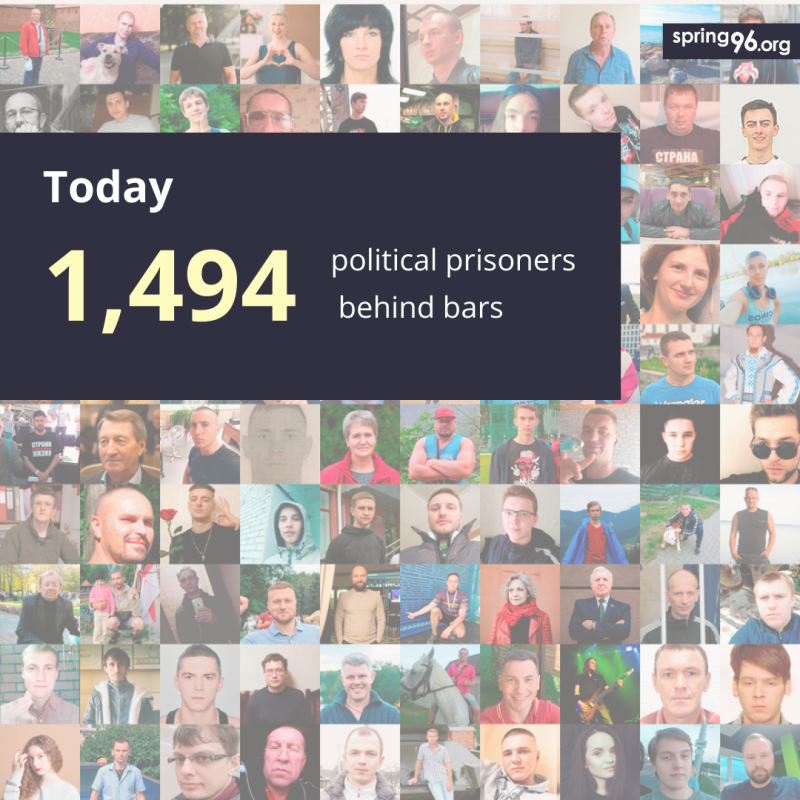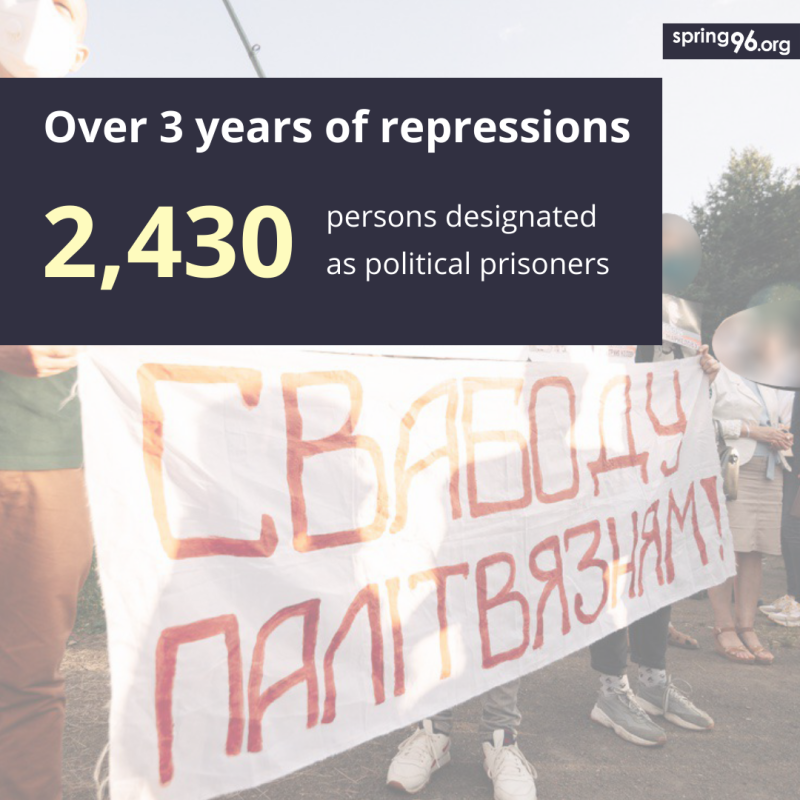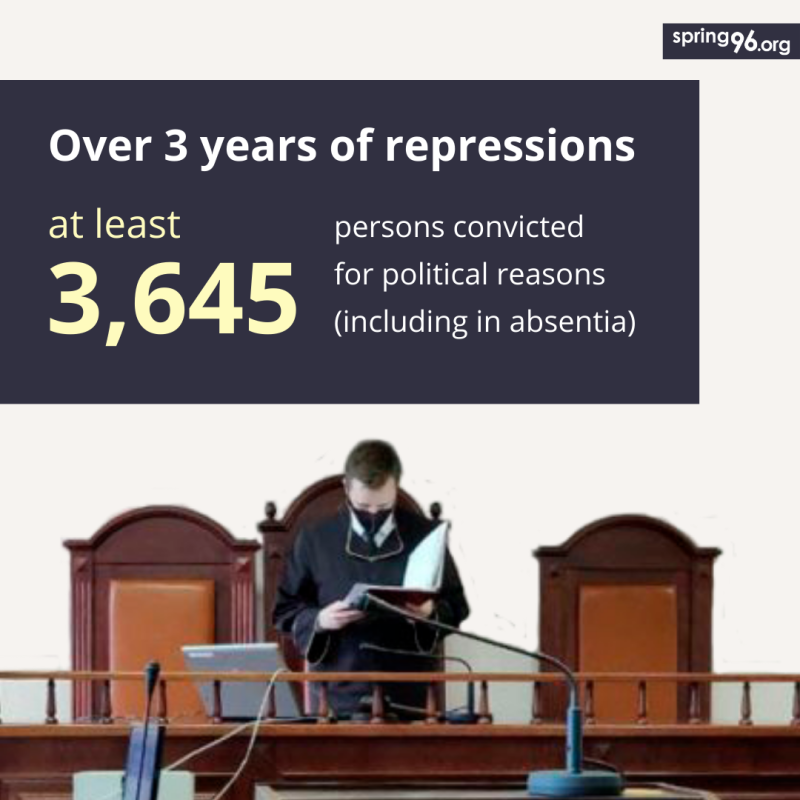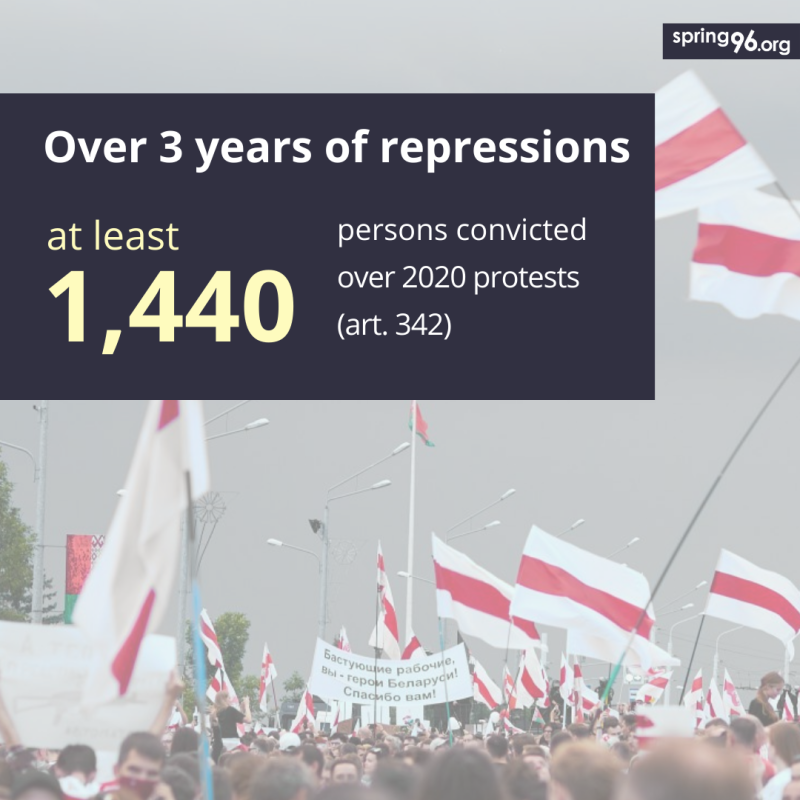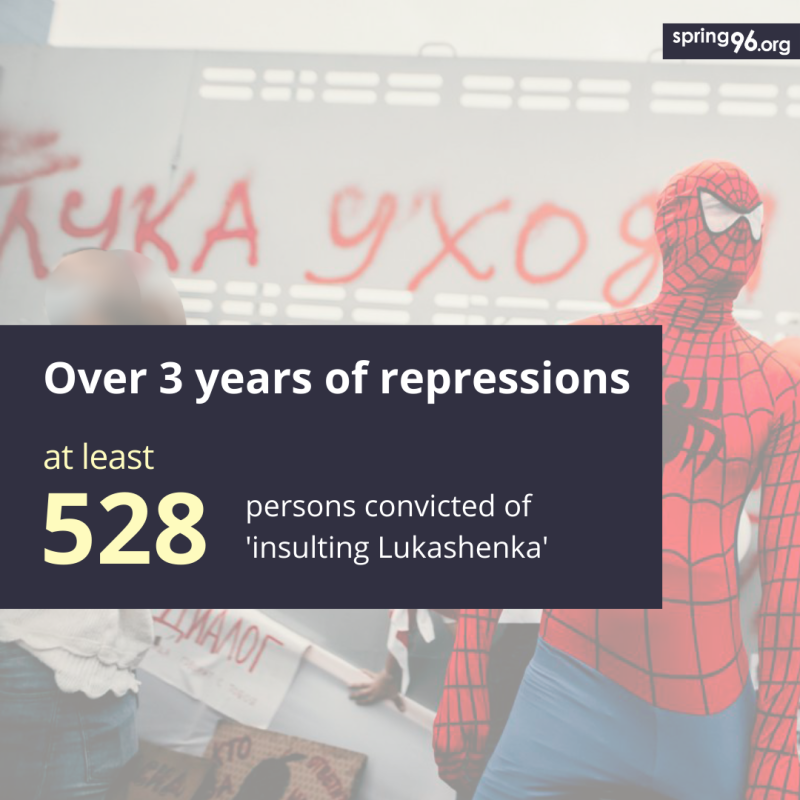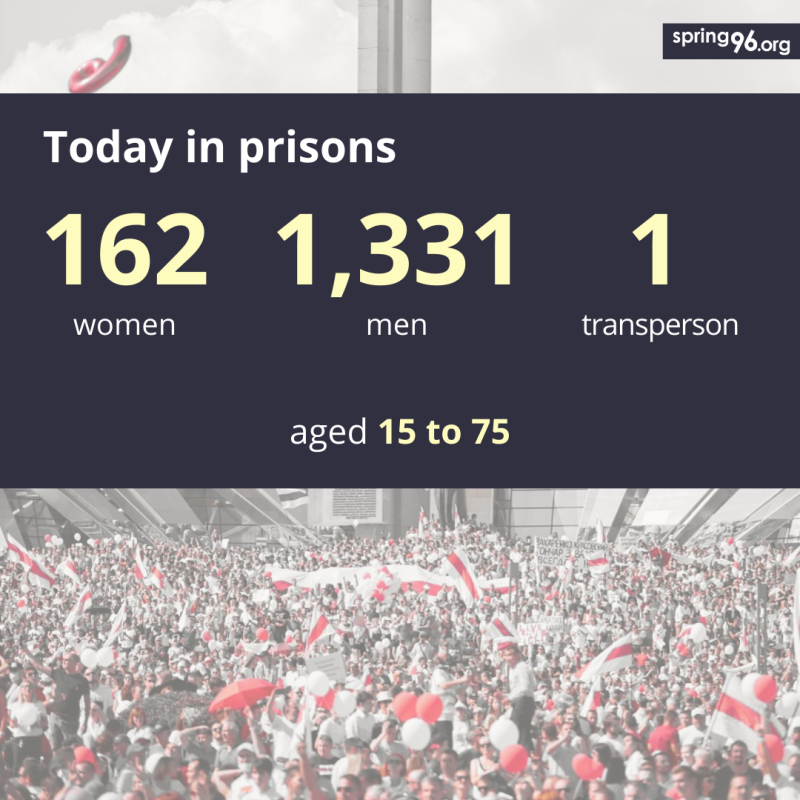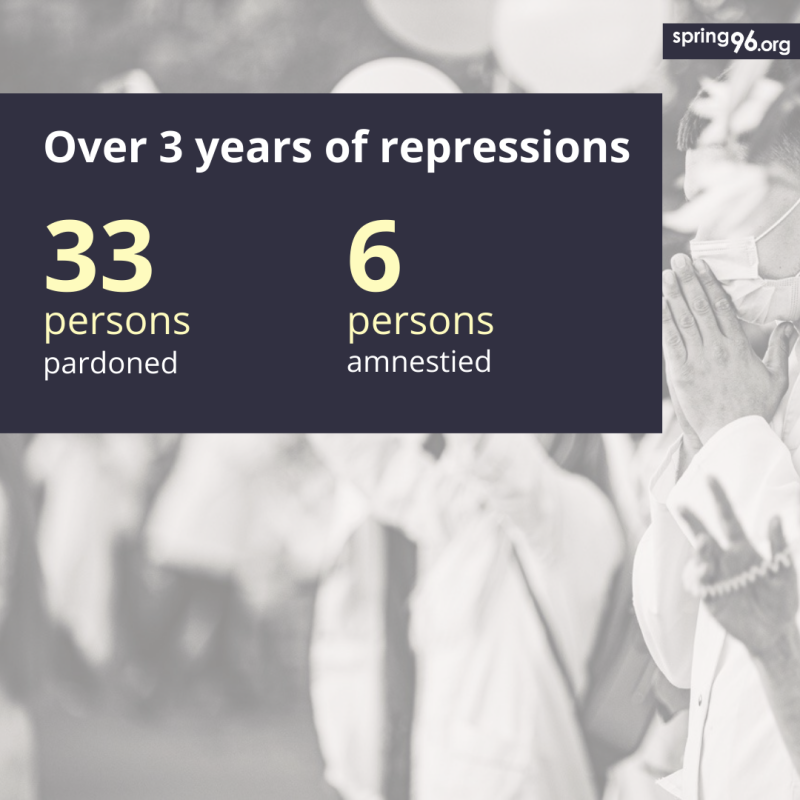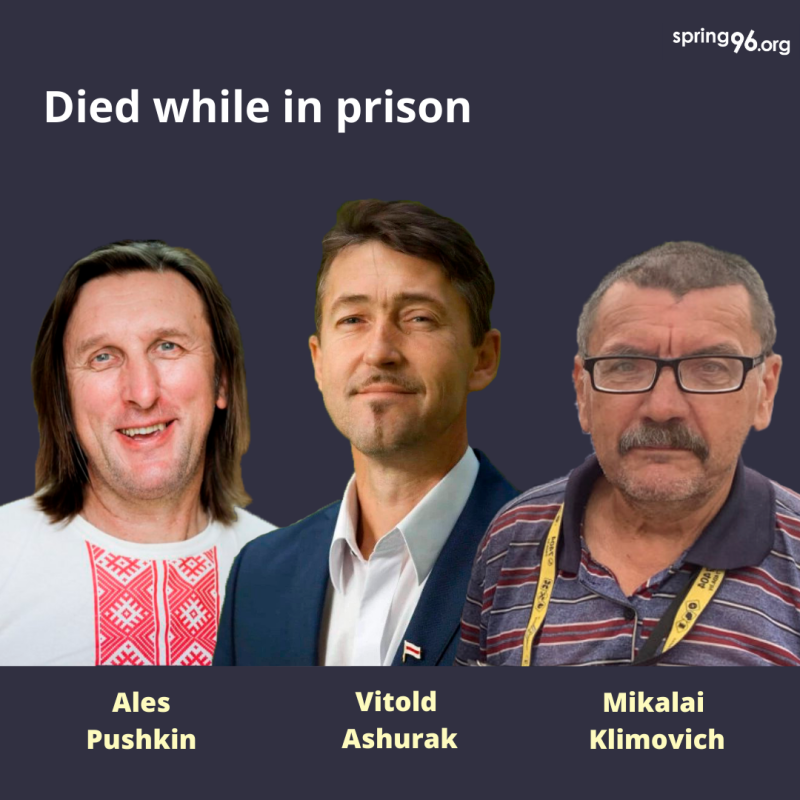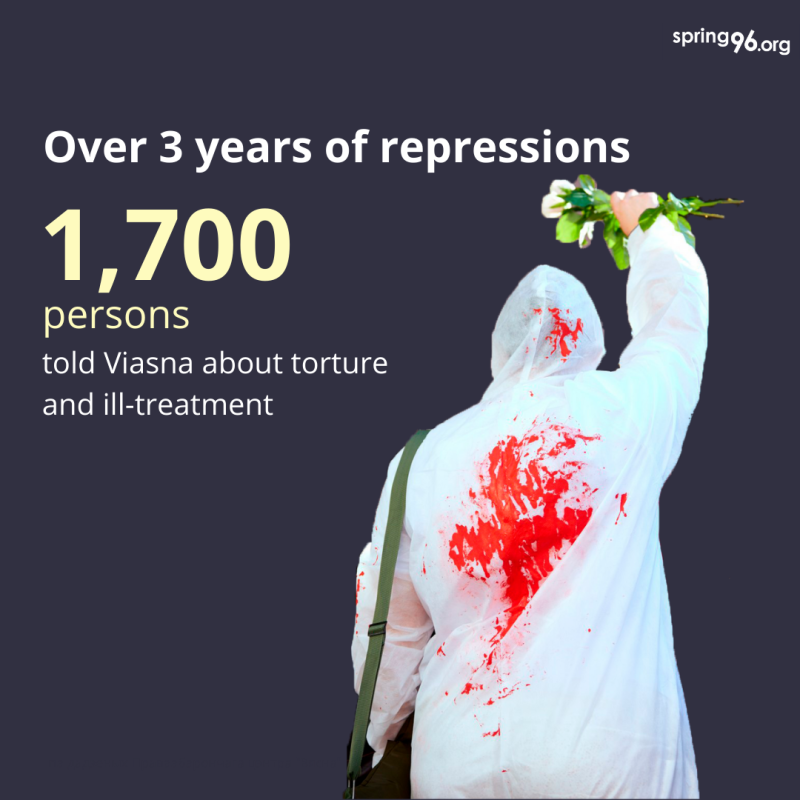At least 3,645 people have criminal convictions three years after the 2020 election
Three years ago, on August 9, 2020, Belarus held a rigged presidential election. This resulted in mass protests across Belarus, which were brutally suppressed by the authorities. But the monstrous repression continues to this day: every day in Belarus, law enforcers detain dozens of people, with some being beaten, tortured, and sentenced to jail terms. Thousands faced imprisonment and inhuman conditions of detention, tens of thousands of were forced to leave the country. The Belarusian authorities wage a fierce battle against parents of many children, seniors, students, doctors, human rights activists, journalists, teachers and other representatives of the Belarusian society who continue to express their disagreement. In the three years since the beginning of the election campaign in Belarus, no less than 3,645 people have been convicted in criminal trials—1,440 of them for participation in protests under Article 342 of the Criminal Code. There are at least 1,494 political prisoners currently. Viasna tells in figures about the unprecedentedly appalling human rights situation in Belarus.
As of August 9, 2023, there are 1,494 political prisoners in Belarus, every 11th of whom is a woman. All of them are kept in inhumane conditions. Political prisoners are virtually kept incommunicado, and are not provided with medical care. They are deprived of the right to defense and are thrown into disciplinary cells, where the conditions are torturous.
On May 31, 2020, the human rights community recognized blogger Siarhei Tsikhanouski as a political prisoner.He became the first political prisoner in the events of 2020.
Since then, human rights activists have recognized another 2,430 political prisoners in three years.
Since 2020, at least 4,300 people have faced criminal prosecution on political grounds. Of these, at least 3,645 were convicted.
Article 342 of the Criminal Code (“active participation in actions that grossly violate public order”) is one of the most frequently used articles against protesters. Belarusian courts convicted at least 1,440 people under this article, 407 of whom were women.
Another 528 people were convicted under defamation article 368 (“insulting the president of Belarus”).
Right now, there are 1,331 men, 162 women, and one transgender person in detention.
The youngest political prisoner is 15-year-old Artsiom Vaitsiakhovich, who has been in detention for more than six months and is now awaiting trial.
Vaitsiakhovich’s brother administrator a Railway Workers Community Telegram channel. Artsiom was taken into custody under Part 2 of Article 208 of the Criminal Code (“extortion”). His brother receives demands to stop his activity as a condition for Artsiom's release. The boy is now being held in the pre-trial detention center in Minsk. He will be tried soon.
The oldest political prisoner is 75-year-old Natallia Taran.
Taran was charged under three articles of the Criminal Code: part 1 of Article 368 (“insulting the president of Belarus”), part 2 of Article 367 (“slander against the president of Belarus”), and Article 369 (“insulting a government official”). The trial's details are unknown, as the trial was held behind closed doors. It's only known that the woman was not detained prior to trial, although she was forbidden to leave the country.
The court sentenced her to three and a half years of imprisonment in a general-security penal colony.
A total of 33 people have been pardoned since 2020, and six more have been released under amnesty.
The last known case is the release on pardon of political prisoner Sofia Sapega.
On June 7, she was released on pardon from Homieĺ women's colony No. 4. The governor of Primorsky Krai personally came to pick her up. He “expressed hope that the girl's future life would turn out well.” After that, she was immediately deported to Russia.
Sapega was detained on May 23, 2021, together with Raman Pratasevich, after their Ryanair flight was forced to land in Minsk. Later she was sentenced to six years of imprisonment, and Pratasevich received eight years of imprisonment but was pardoned almost immediately after the trial.
Relatives and close people of some prisoners do not receive information about the condition of their relatives for months. Dozens of people are imprisoned with serious illnesses, so the appointed terms can become life terms for them.
The first known case of the death of a political prisoner behind bars is the death of local activist Vitold Ashurak on May 21, 2022. The heart of the imprisoned activist stopped in Škloŭ colony No. 17. The reported cause of death is cardiac arrest, although, according to relatives, the man did not complain about his health. In the surveillance video from the colony, the man looked exhausted and could barely stand on his feet. When the relatives were shown the body of the political prisoner, the head was almost completely covered with bandages. The Investigative Committee stated that the political prisoner's death was not criminal and has not yet opened a criminal case. Vitold Ashurak was 50 years old.
On May 2023, human rights defenders learned of the death of a 61-year-old political prisoner, blogger, and public activist from Pinsk, Mikalai Klimovich, in Viciebsk penal colony No. 3. Klimovich was sentenced to 12 months in jail for reacting to a caricature of Lukashenka posted on the Russian social network Odnoklassniki. The man had a second-degree disability due to heart disease; he had suffered a stroke and underwent complex heart surgery. Despite this, the court in Pinsk sentenced him to imprisonment. Before the verdict, the blogger said that he could die in prison, as he needed to take many strong prescription medications. Klimovich only lasted a little more than two months in prison.
On the night of July 11, 57-year-old political prisoner Ales Pushkin died in intensive care. The MOST media outlet quoted its sources as saying that Ales had a perforated ulcer and was not treated in prison in time. The artist was brought to the hospital unconscious on July 11, when his heart stopped on the operating table.
At least 55 political prisoners were switched to supermax security mode for "violation of the established order," and new criminal cases under Article 411 of the Criminal Code were opened against 28 others, according to human rights activists.
Dozens of political prisoners are released from detention centers upon completing their terms every month. According to Viasna data, at least 470 political prisoners were released.
Thousands faced imprisonment and inhuman conditions of detention, tens of thousands of were forced to leave the country. At the same time, no less than 1,700 people told "Viasna" about torture and ill-treatment.



